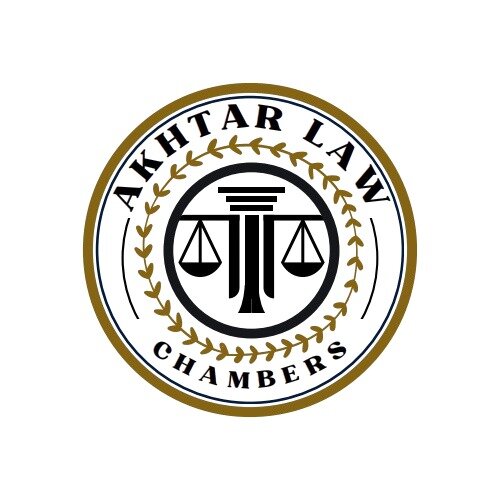Best Lawsuits & Disputes Lawyers in Pakistan
Share your needs with us, get contacted by law firms.
Free. Takes 2 min.
Or refine your search by selecting a city:
List of the best lawyers in Pakistan
About Lawsuits & Disputes Law in Pakistan
Lawsuits and disputes in Pakistan involve a myriad of legal conflicts ranging from civil, commercial, family, property, to constitutional issues. The legal framework is extensive, comprising statutes, regulations, and case law. The judiciary, with the Supreme Court at its helm, interprets and enforces these laws. Dispute resolution mechanisms include litigation, arbitration, and mediation, with an increasing emphasis on alternative dispute resolution to manage the heavy caseload in courts.
Why You May Need a Lawyer
Legal disputes are often complex and can be daunting for individuals unfamiliar with legal terminology and procedures. Common situations requiring legal assistance include contract disputes, property settlement issues, personal injury claims, family-related conflicts such as divorce or custody battles, employment disagreements, and breaches of business agreements. Lawyers can provide expert advice, represent your interests, and guide you through the legal system effectively.
Local Laws Overview
In Pakistan, the legal environment for lawsuits and disputes is influenced by a mix of common law and Sharia-based provisions. Key aspects include:
- Civil Procedure Code (CPC): Governs the procedure for civil litigation.
- Pakistan Penal Code (PPC): Details criminal offenses and penalties.
- Contract Act, 1872: Defines laws relating to contracts and agreements.
- Arbitration Act, 1940: Focuses on arbitration processes as alternative dispute resolution.
- Family Laws: Family disputes are governed by Muslim Family Law Ordinance, among others, addressing marriage, divorce, inheritance, etc.
The judiciary also plays a pivotal role with decisions and precedents that influence ongoing and future legal disputes.
Frequently Asked Questions
What is the first step in filing a lawsuit in Pakistan?
The first step generally involves consulting with a lawyer to assess your case and then filing a plaint in the relevant court if you have a valid claim.
How long does it typically take to resolve a legal dispute in Pakistan?
The timeframe can vary significantly based on the case complexity, court backlog, and the efficiency of involved legal representatives.
Is arbitration mandatory before going to court?
While not always mandatory, arbitration is encouraged for specific disputes to expedite resolution and reduce court burdens.
What does it cost to hire a lawyer for a lawsuit?
Costs differ based on the lawyer's experience, the complexity of the case, and the court level (district, high court, supreme court) involved in the dispute.
Can I represent myself in a legal dispute?
Yes, it is legally permissible to represent yourself, but it is often better to have legal representation due to the complexities involved.
What are the alternatives to litigation?
Mediation and arbitration are prominent alternatives, offering more privacy and potentially quicker resolutions than traditional court cases.
How are family disputes resolved in Pakistan?
Family disputes are resolved under Muslim Family Law Ordinance and related statutes, often involving family courts specialized in such matters.
What is 'stay order' in Pakistan law?
A stay order temporarily halts proceedings or the execution of a lower court's order, usually granted to maintain status quo until an appeal is heard.
Are court hearings open to the public?
Generally, yes, but some specific cases, particularly sensitive family or security-related issues, may be held in camera (closed to the public).
What type of disputes typically require intervention from the High Court?
More severe criminal cases, significant constitutional matters, and appeals from lower court decisions often require High Court intervention.
Additional Resources
Several resources are available for legal assistance and advice:
- Pakistan Bar Council: A statutory body overseeing the profession of law and professional conduct of lawyers.
- Law & Justice Commission of Pakistan: Offers insights and proposals for law reform aimed at ensuring justice and fair trial.
- Legal Aid Society: Provides free legal advice and services to the underserved segments of society.
- Government of Pakistan Law Portal: Contains acts, ordinances, and rules relating to various legal issues.
Next Steps
If you need legal assistance in lawsuits and disputes, start by identifying your specific legal issue and seek a qualified legal professional. You can contact the Pakistan Bar Council for a list of registered lawyers or use local legal aid services if necessary. As legal proceedings can be lengthy and detailed, having a knowledgeable lawyer can save time and ensure the best possible outcome for your case. Prepare all relevant documents and facts beforehand to facilitate a more efficient legal consultation.
Lawzana helps you find the best lawyers and law firms in Pakistan through a curated and pre-screened list of qualified legal professionals. Our platform offers rankings and detailed profiles of attorneys and law firms, allowing you to compare based on practice areas, including Lawsuits & Disputes, experience, and client feedback.
Each profile includes a description of the firm's areas of practice, client reviews, team members and partners, year of establishment, spoken languages, office locations, contact information, social media presence, and any published articles or resources. Most firms on our platform speak English and are experienced in both local and international legal matters.
Get a quote from top-rated law firms in Pakistan — quickly, securely, and without unnecessary hassle.
Disclaimer:
The information provided on this page is for general informational purposes only and does not constitute legal advice. While we strive to ensure the accuracy and relevance of the content, legal information may change over time, and interpretations of the law can vary. You should always consult with a qualified legal professional for advice specific to your situation.
We disclaim all liability for actions taken or not taken based on the content of this page. If you believe any information is incorrect or outdated, please contact us, and we will review and update it where appropriate.
Browse lawsuits & disputes law firms by service in Pakistan
Pakistan Attorneys in related practice areas.
Browse lawsuits & disputes law firms by city in Pakistan
Refine your search by selecting a city.

















